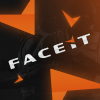The history of CS:GO has already seen sixteen Majors. For a long time, they have been the most important tournament in the season. However, due to the coronavirus pandemic, there hasn’t been one for a year and a half now. It seems that Valve has scheduled the seventeenth major for the fall of 2021, but we’ll learn more later on.

In this post, we’re going to analyze every victory at a Major to find out if winning the main CS tournament tends to ruin careers or not. After all, the game’s history has witnessed a whole number of cases when a player won Valve’s key tournament only to fade into obscurity forever.
DreamHack Winter 2013

The winners of the tournament were the Swedes FNATIC, whom no-one expected to win. The lineup included znajder, Devilwalk, JW, flusha, and pronax. And while the last three players are in the public eye to this day, znajder and Devilwalk have disappeared from the big screens for good.
Both guys played another Major with FNATIC. JW got znajder kicked out due to personal enmity (non-official information), and Devilwalk ceased his professional career to become the Swedes’ coach. Later on, Jonathan would win another Major and leave the team.
As of now, JW still represents FNATIC, flusha is actively searching for a team, and pronax is the co-owner of GODSENT. Not so long ago, znajder joined the Lemondogs roster, and Devilwalk is coaching the international lineup FunPlus Phoenix.
Was the victory at DreamHack Winter 2013 the end of Devilwalk’s and znajder’s careers? It was that only for Andreas: after his 2013 triumph, he wouldn’t appear in any of the top teams until 2016. In 2016, GODSENT would be created, which would reincarnate znajder’s career. However, he would play at the top level just for one year, only to disappear from the media space again until 2021.
EMS Katowice 2014

The second CS:GO Major won by Virtus.pro. And while there is room for speaking about career failure in the first case, there are no — neither should there be — any such talks in the case of the “Polish Bears.”
From 2014 until 2017, VP consistently performed at top events, regularly won Tier-1 tournaments, and effortlessly reached the playoffs at Majors. And they didn’t make any reshuffles. The EMS Katowice 2014 champions were among the best in the world for three consecutive years.
ESL One Cologne 2014

NiP’s first win and their third Major final. Since 2012, Ninjas in Pyjamas have been among the planet’s best players, so winning Valve’s tournament was just a matter of time for them. Especially since NiP had already made the finals at DH 2013 and EMS Katowice, but hadn’t won.
But what about the players’ careers? This victory ruined the career of one player, namely that of Fifflaren, who, statistically, was the worst in the NiP lineup ever. Just like winning those Majors, kicking Fifflaren out was a matter of time. The organization had been talking about kicking Robin out for a long time before they actually did it right after the team won the $250,000 championship.
A long time has passed since the victory in Cologne. After his kick, Fifflaren became an analyst. In the summer of 2019, he told the truth about the NiP organization, and in early 2020, he got involved in the Dignitas project, where Robin is currently the gaming deputy director. Six years have passed since that win in Germany, and Fifflaren hasn’t accomplished anything ever since — and neither have his Dignitas cohorts.
DreamHack Winter 2014

Finally, the French won a Major. Until 2013, VeryGames had been one of the best teams in the world, yet never before had they managed to reach the finals of a Major, let alone win one. Their successors, Team LDLC, won a trophy for their country in late 2014.
But similarly to the case with VP at the Major before the previous one, LDLC players stayed in the top to the end, and two of the five are still among the most demanded players on the esports scene.
ESL One Katowice 2015

FNATIC’s second triumph. It’s been five years since that victory. With a renewed lineup featuring KRIMZ and olofmeister, the Swedish team wins the Major and becomes the first team to do it twice.
The only lineup change that would happen after the victory in Poland is the kick of Devilwalk, who became the first player to win a Major both as a player and as a coach.
After inspecting five tournaments from Valve, we did not find any trace of the “curse”. Many players from that era are still in in a good shape and show great performance on the pro scene. Hmm, maybe the curse will show up in the next majors? Time will tell.
Do not forget to like this post and subscribe to our social networks in order not to miss the second part of our investigation!











